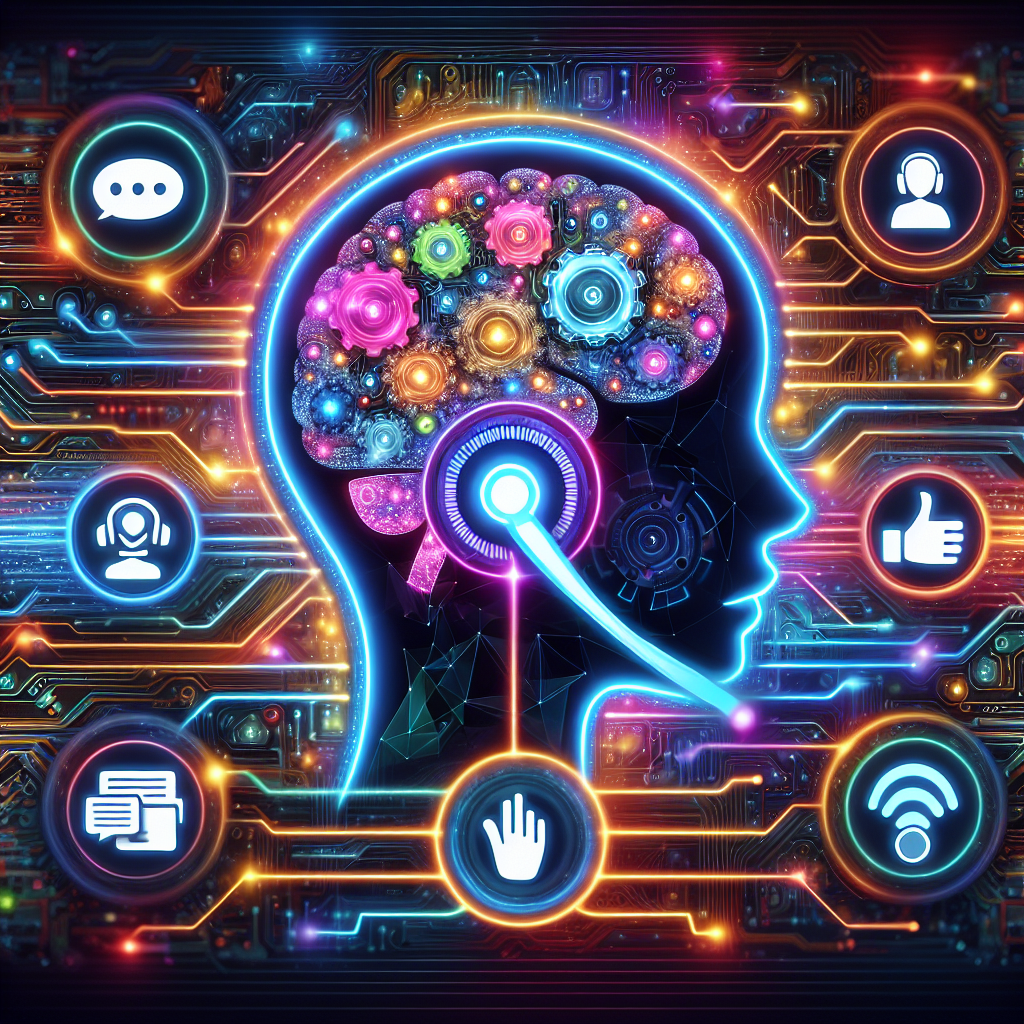Artificial Intelligence (AI) has become a powerful tool for businesses looking to improve their customer service strategies. With the ability to analyze data, automate processes, and provide personalized experiences, AI is reshaping the way companies interact with their customers. In this article, we will explore how AI is transforming customer service, the benefits it brings to businesses, and some common FAQs about AI in customer service.
How AI is Reshaping Customer Service Strategies
AI is revolutionizing customer service in a variety of ways, from chatbots to data analytics. Here are some key ways in which AI is reshaping customer service strategies for businesses:
1. Chatbots: One of the most common uses of AI in customer service is through chatbots. These virtual assistants can provide instant responses to customer inquiries, resolve common issues, and even escalate more complex problems to human agents. Chatbots are available 24/7, reducing response times and improving overall customer satisfaction.
2. Personalization: AI allows businesses to personalize customer interactions based on data analytics. By analyzing customer behavior and preferences, companies can tailor their communications to individual needs, increasing engagement and loyalty. Personalized recommendations, product suggestions, and targeted marketing campaigns are just a few examples of how AI is helping businesses connect with their customers on a more personal level.
3. Predictive Analytics: AI can also help businesses anticipate customer needs before they arise. By analyzing patterns and trends in customer data, companies can predict future behaviors, identify potential issues, and proactively address customer concerns. This proactive approach can lead to higher customer satisfaction and retention rates.
4. Automation: AI-powered automation tools can streamline customer service processes, reducing the need for manual intervention. Tasks such as routing inquiries, categorizing tickets, and updating customer records can all be automated, freeing up human agents to focus on more complex issues. Automation can also improve efficiency, reduce costs, and enhance the overall customer experience.
5. Sentiment Analysis: AI can analyze customer feedback and sentiment to gauge satisfaction levels and identify areas for improvement. By monitoring social media, reviews, and customer surveys, businesses can gain valuable insights into how customers perceive their brand and make data-driven decisions to enhance the customer experience.
Benefits of AI in Customer Service
The adoption of AI in customer service offers numerous benefits for businesses, including:
1. Improved Efficiency: AI-powered tools can handle a high volume of customer inquiries simultaneously, reducing response times and increasing productivity. This efficiency allows businesses to serve more customers without sacrificing quality.
2. Cost Savings: By automating routine tasks and streamlining processes, AI can help businesses reduce operational costs and increase profitability. AI-powered chatbots, for example, can handle a large number of customer inquiries at a fraction of the cost of human agents.
3. Enhanced Customer Experience: AI enables companies to provide personalized, timely, and efficient customer service, leading to higher satisfaction rates and improved customer loyalty. By leveraging AI to anticipate and address customer needs, businesses can create a seamless and enjoyable experience for their customers.
4. Data-Driven Insights: AI can analyze large amounts of customer data to identify trends, patterns, and opportunities for improvement. By leveraging these insights, businesses can make informed decisions that drive growth and enhance the overall customer experience.
5. Scalability: AI-powered customer service solutions are highly scalable, allowing businesses to adapt to changing customer demands and volume. Whether handling a sudden influx of inquiries or expanding into new markets, AI can help businesses scale their customer service operations efficiently.
FAQs about AI in Customer Service
Q: What is the difference between AI and traditional customer service?
A: Traditional customer service relies on human agents to handle customer inquiries, resolve issues, and provide support. AI, on the other hand, uses algorithms and machine learning to automate processes, analyze data, and deliver personalized experiences. While traditional customer service is limited by human capacity and manual intervention, AI can handle a high volume of inquiries simultaneously and provide instant responses 24/7.
Q: Are AI-powered chatbots replacing human agents in customer service?
A: AI-powered chatbots are designed to complement, not replace, human agents in customer service. While chatbots can handle routine inquiries and provide instant responses, human agents are still needed to handle complex issues, provide empathy and emotional support, and deliver a personalized touch. The ideal customer service strategy combines the efficiency of AI with the human touch of human agents to deliver a seamless and personalized experience for customers.
Q: How can businesses ensure the privacy and security of customer data when using AI?
A: Protecting customer data is a top priority for businesses using AI in customer service. To ensure privacy and security, companies should implement robust data protection measures, comply with industry regulations (such as GDPR), and regularly audit their AI systems for vulnerabilities. By adopting best practices in data security and transparency, businesses can build trust with customers and safeguard their sensitive information.
Q: How can businesses measure the ROI of AI in customer service?
A: Measuring the ROI of AI in customer service involves tracking key performance indicators (KPIs) such as response times, resolution rates, customer satisfaction scores, and cost savings. By comparing these metrics before and after implementing AI-powered solutions, businesses can quantify the impact of AI on their customer service operations and assess the return on investment. Additionally, businesses can conduct customer surveys, gather feedback, and monitor customer sentiment to evaluate the effectiveness of AI in enhancing the overall customer experience.
In conclusion, AI is reshaping customer service strategies for businesses by enabling automation, personalization, predictive analytics, sentiment analysis, and more. The adoption of AI in customer service offers numerous benefits, including improved efficiency, cost savings, enhanced customer experience, data-driven insights, and scalability. By leveraging AI-powered tools and solutions, businesses can streamline their customer service operations, increase customer satisfaction, and drive growth in today’s competitive marketplace. If you have any further questions about AI in customer service, feel free to reach out to us.

